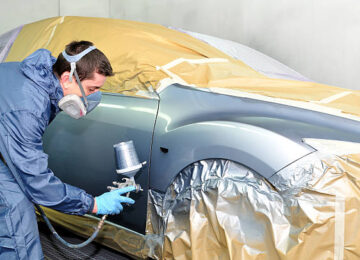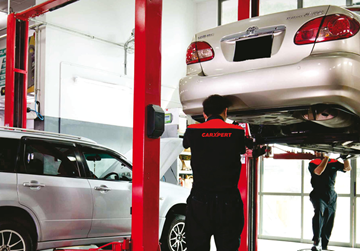Purchasing a used car can be a sensible financial decision, offering the benefits of vehicle ownership without the steep depreciation associated with new cars. However, navigating the market to find a reliable used car requires a discerning eye and an informed approach. Here’s what you need to consider to make an intelligent choice.
Assess Your Needs and Budget
Before diving into the world of used cars, evaluating what you need from a vehicle is essential. Consider factors like size, fuel efficiency, and specific features like all-wheel drive or additional cargo space. Equally crucial is setting a realistic budget for the purchase price and ongoing costs such as insurance, maintenance, and fuel.
Using tools like a car payment calculator Indiana can help you estimate monthly expenses, ensuring your car purchase fits comfortably within your financial landscape.
Check the Vehicle History
A thorough background check is paramount when considering a used car. This includes examining the service history, previous ownership, and any previous accidents. Essential documents to review include the V5C registration document, which confirms the car’s registered keeper, and a comprehensive service record. Avoid vehicles with a sporadic or incomplete service history, as they may harbour hidden problems.
Understand the Importance of Mileage
While low mileage is a crucial indicator of a car’s condition, it’s not the sole factor to consider. How those miles were accumulated is equally important. A vehicle with high mileage from long motorway journeys is often in better condition than one with lower mileage from short, stop-start trips. Look for cars with a consistent mileage history aligned with their age.
Inspect the Car Thoroughly
Physical inspection is a crucial step. Check the bodywork for rust spots, mismatched paint, or uneven panel gaps, indicating past accidents. Inside the car, assess the wear and tear on the seats, steering wheel, and other interior elements to ensure they correspond with the car’s age and reported mileage.
Under the hood, a straight engine should appear clean and free of oil leaks. Check hoses and belts for cracks or wear and ensure the engine starts smoothly without excessive noise or smoke.
Take a Test Drive
A test drive can reveal issues not apparent from a visual inspection. Pay attention to how the car handles, including the brakes’ responsiveness, the gearbox’s smoothness, and the suspension’s performance on rough roads. Listen for unusual noises, and ensure all electrical components like air conditioning, windows, and radio function correctly.
Negotiate Based on Findings
You can negotiate the price with a complete understanding of the car’s condition and market value. Don’t hesitate to point out any issues you’ve discovered that can be leveraged to reduce the purchase price or to have the seller address repairs before you complete the purchase.
Conclusion
Buying a used car involves thorough research and careful consideration but can ultimately be a highly economical and satisfying option. By following these steps, you ensure that you get a good deal and a reliable and efficient vehicle that meets your needs. Remember, meticulous preparation and informed decision-making are the key to a successful used car purchase.











